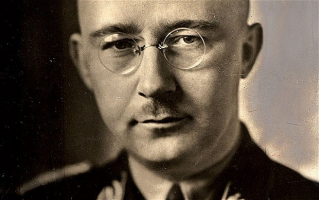Top 7 Interesting Facts About Ray Kroc
American businessman Raymond Kroc (1902–1984) is most known for making McDonald's the most prosperous global network of fast-food restaurants. His charisma was ... read more...out of this world, and it is said that he "either captivated or antagonized everyone he met." Here are the seven most interesting facts about Ray Kroc.
-
Kroc returned home after participating in World War I and started playing the piano. However, he disliked the long hours, so after getting married, he began working in sales. He worked for the Lily Tulip Cup Company selling paper cups for 17 years. Ray Kroc's occupation as a traveling milkshake machine salesman when he met the McDonald brothers, who had bought eight milkshake machines, is an interesting fact about Ray Kroc. He was amazed by the aggressive sales tactics he used, and they were impressed by how quickly and cheaply the brothers were able to serve customers by keeping their menu simple—just burgers, fries, and shakes. In 1954, he signed on with the business as a franchise agent in exchange for a meager cut of the revenues.
He was a salesman for Multimixer milkshake equipment at the time. When the McDonald Brothers purchased eight machines at a time when sales were declining, Ray's focus turned to them. Following their meeting with the brothers, the three of them recognized promise in one another, leading to a commercial collaboration between Ray Kroc and the McDonald Brothers.
By the time the brothers met Ray, they had already opened eight other locations and licensed 20 additional franchises. Only when they got to know Rey and began working with him did McDonald's business start to really take off.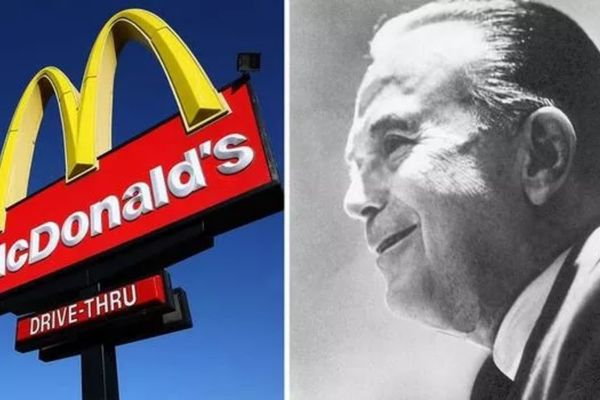
Photo: www.express.co.uk 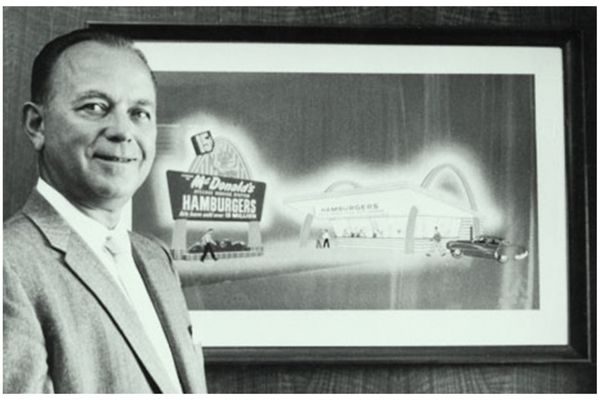
Photo: businessideaslab.com -
Due to Kroc's foresight in standardizing cooking and serving methods, all procedures were effective and simple for new and unskilled staff to master. This was critical to the business as teen workers arrived and left so that clients would continue to receive the food they anticipated in a timely manner. Any consumer who had to wait longer than five minutes for their order was required to receive a refund.
In order to expand his presence, Kroc created a friendly franchise agreement. Instead of collecting a significant launch fee, he adopted the strategy of charging a 1.9 percent commission on a franchisee's sales.
Kroc is frequently credited with introducing McDonald's to the condensed menu and efficient meal preparation. He did, however, affirm that everything was set up when he joined the business. His expertise was in making sure the franchisees were uniform. At the time, it was typical for franchisees to purchase vast tracts of land, but Kroc saw value in offering franchises for specific locations. He was able to maintain control over the uniformity of food preparation, cleanliness standards, customer service, shop furnishings, etc. thanks to small franchisees. He maintained establishments in suburban areas and prohibited pinball and cigarette machines. By doing this, he prevented them from turning into biker gang hangouts, as many other hamburger joints unavoidably did.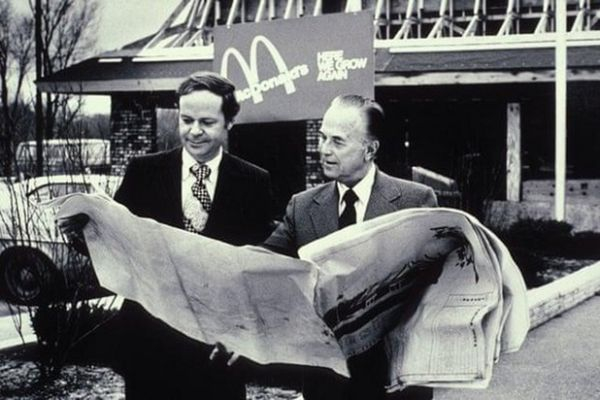
Photo: cafebiz.vn 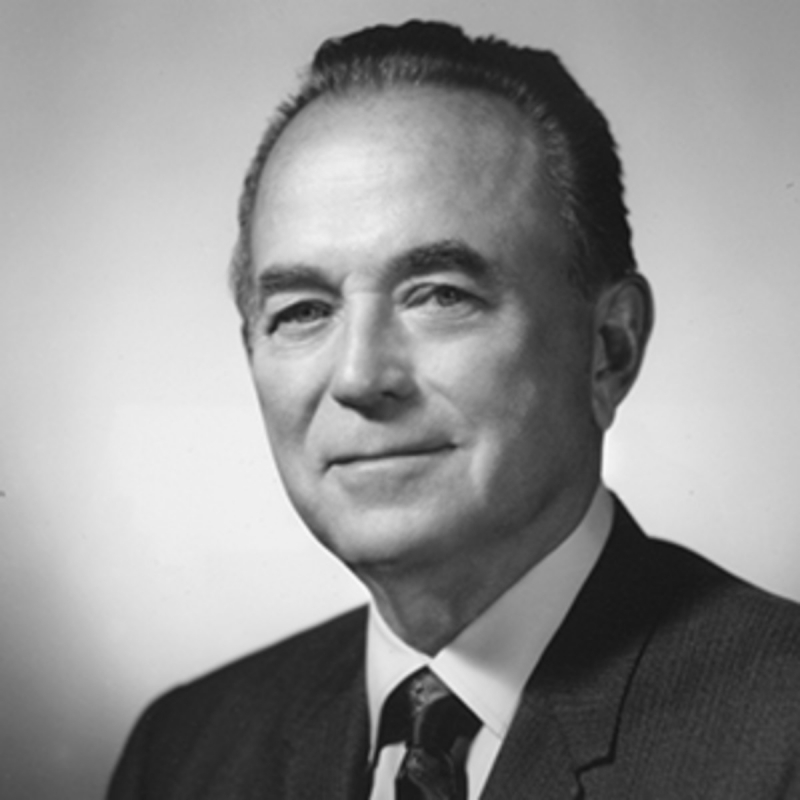
Photo: www.biography.com -
Kroc established Hamburger University in Chicago as a training facility to guarantee uniform standards throughout the business. "Hamburgerology with a minor in French fries" may be a certification available to these employees and franchisees.
At the global headquarters of the McDonald's Corporation in Chicago, Illinois, there is a training center called Hamburger University. It imparts restaurant management knowledge to owner-operators, mid-managers, and high-potential restaurant managers. As an "organizational cultural hub, introducing a continuous education process for the value chain, and transferring knowledge into tangible business results," Hamburger University's purpose is to become. Students at Hamburger University take classes in running a restaurant, leadership, customer service, operations, and procedures.
Currently, Hamburger University has 19 full-time resident lecturers on its 80-acre (32 ha) campus. The building has 13 classrooms for instruction, a 300-seat auditorium, 12 spaces for interactive education teams, and 3 cooking labs. Simultaneous interpretation is available through Hamburger University, and the professors can instruct in 28 different languages. In their first month working for McDonald's, restaurant staff members undergo about 32 hours of training, and more than 5,000 students enroll in Hamburger University each year. Ray Kroc, the company's founder, monitored lessons at the outset. Students still study Mr. Kroc's videotaped lectures at Hamburger University, despite the fact that he passed away in 1984.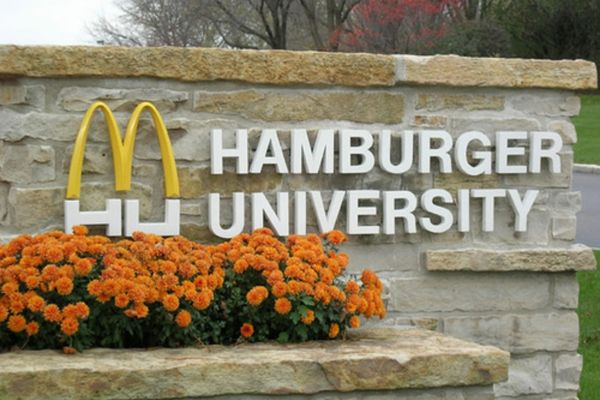
Photo: www.braingainmag.com Video: CNN Business -
In 1961, selling a hamburger stand for $2.7 million was an extremely lucrative transaction. Everyone is aware that McDonald's is not your normal hamburger joint. The inaugural franchise agreement between Ray Kroc and the McDonald brothers included a $950 franchise fee, a 1.9 percent service fee levied on food sales, a 0.5 percent royalty payment to the McDonald brothers, and a remaining 1.4 percent going to Kroc.
The McDonald brothers' reluctance to grow irritated Kroc, who in 1961 bought their stock in the company. An interesting fact about Ray Kroc is that he had franchised 228 McDonald's restaurants by 1960, generating $56 million annually. When Kroc bought the McDonald brothers out in 1961 for $2.7 million, he not only made himself wealthy but also became extremely wealthy. When Kroc learned that their first San Bernardino business had been left out, he was indignant. He opened a McDonald's just next door and coerced them into changing the name. Additionally, it is said that he broke a handshake deal to keep paying them royalties of 0.5%. However, neither brother ever mentioned it in a public setting. Ethel, Kroc's first wife, and he separated in the same year. In the settlement, he gave her practically everything but his interests in McDonald's.
Even more terrible are the royalties by today's standards, especially for the McDonald brothers' heirs. With McDonald's $61 billion in sales, according to a 2012 estimate, the McDonald brothers' royalty payment would have been $305 million had the 1961 buyout not taken place.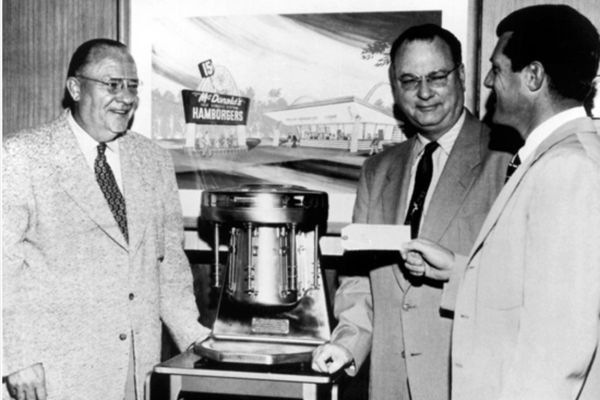
Photo: 33713932.weebly.com Video: Weyland -
The Kroc Foundation provided funding for studies, care, and outreach on a number of illnesses, including alcoholics, diabetes, arthritis, and multiple sclerosis. Most notably, it was responsible for founding the Ronald McDonald House, a nonprofit that offers parents free housing close to hospitals where their children are receiving treatment.
Kroc, a devoted Republican who opposed the New Deal and government aid, was a strong proponent of individualism. Ray Kroc gave President Nixon's campaign $255,000 in 1972. A minimum wage measure that included a wage for teens, McDonald's main workforce, was later vetoed by the president. The decision was termed the "McDonald's veto" by detractors who claimed Kroc had sway on Nixon. Kroc categorically denied being involved.
The American Academy of Achievement gave Kroc the Golden Plate Award in 1973. In 1972, Kroc contributed $250,000 to Richard Nixon's reelection campaign. Some people, most notably Senator Harrison Williams, alleged that Kroc did this to persuade Nixon to veto a minimum wage bill that was being considered by Congress.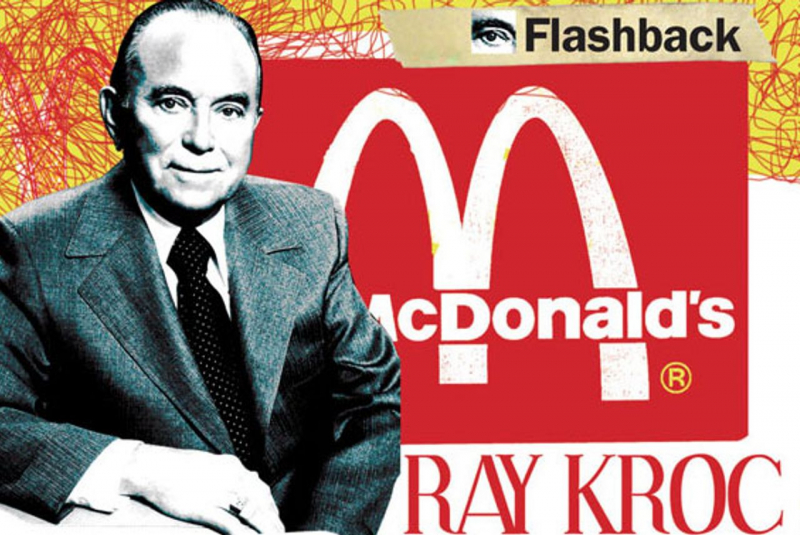
Photo: www.doisongphapluat.com Video: 12 News -
Entrepreneur Ray Kroc opened McDonald's outlets all over the globe. You may thank Ray Kroc for the Big Mac and Happy Meal that you may have once loved as a child.
"Grinding it Out," a book about Kroc's life, was published in 1977. It was republished in 2016 and co-written with Robert Anderson. The story of how McDonald's became one of the biggest corporations in the world is told in the film Grinding It Out. Ray Kroc achieved this by grasping the correct opportunity, honing the company's fundamentals, consistently stressing development, and persevering until he discovered a winning plan.
He recounts his life's events in this book. from his early sales gigs to his eventual position as CEO of McDonald's. The majority of extremely successful business owners today seem to be quite young, like Mark Zuckerberg of Facebook, who amassed wealth in his 20s. However, Ray Kroc's story was different. He didn't begin franchising McDonald's until he was fifty! That demonstrates that you can pursue your dreams at any age.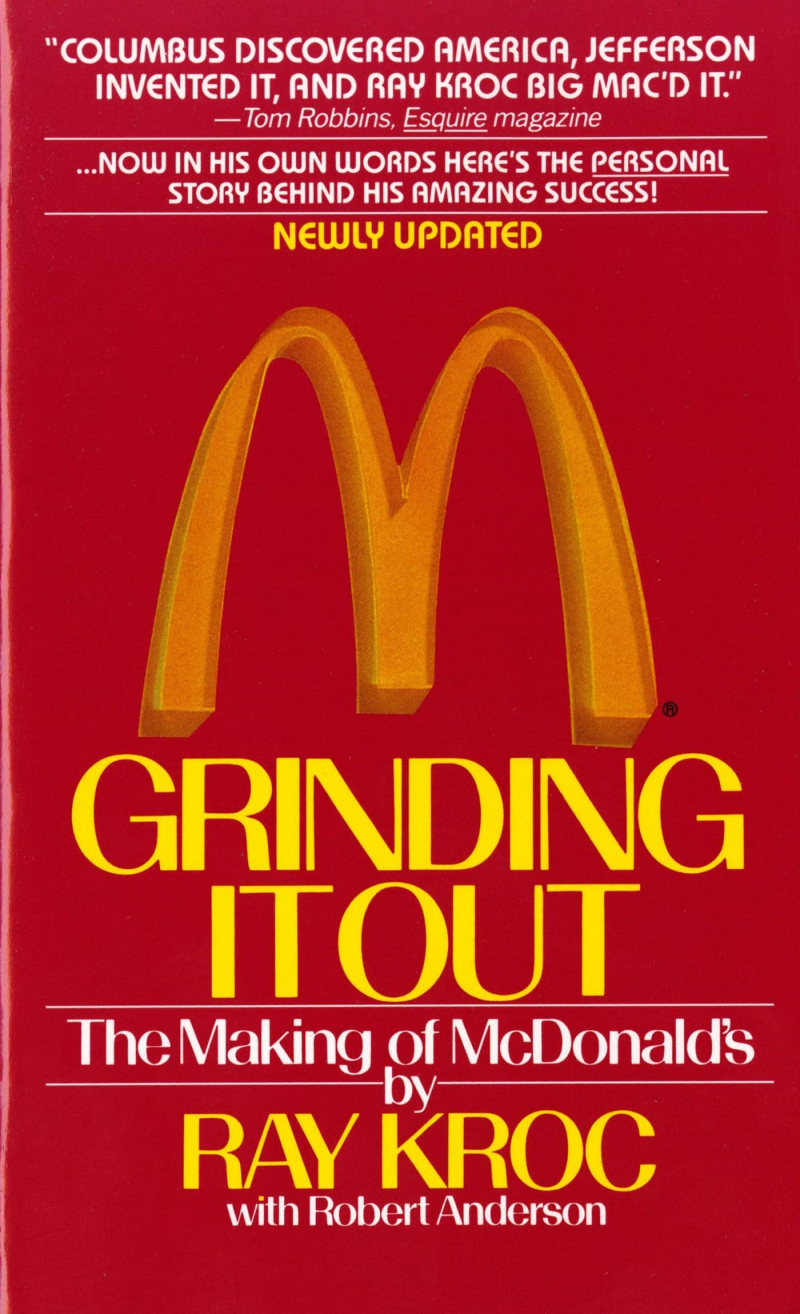
Photo: amazon.com 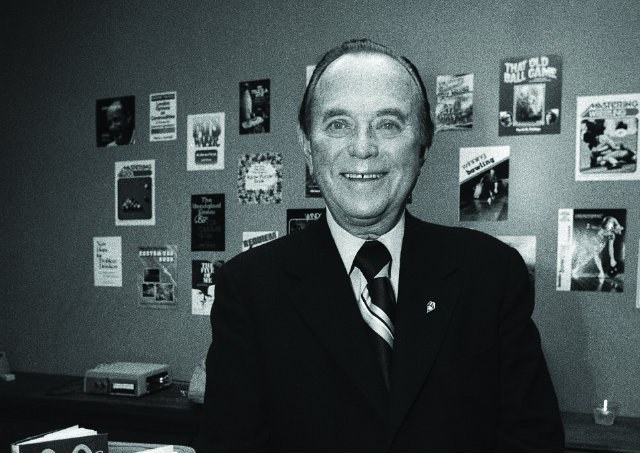
Photo: administradores.com.br -
Every sports fan has had times when they wanted to yell at a team for playing poorly. And it's certainly reasonable to say that everyone who has ever owned a sports club has experienced many of those moments as well. It's also likely that they occasionally couldn't control the impulse to let loose in a locker room or office.
Kroc was a lifetime baseball lover who was born and raised in Chicago. He once made an unsuccessful bid to purchase the Chicago Cubs, baseball team. The San Diego Padres were then up for sale in 1974, after he had stopped managing McDonald's. According to rumors, he paid $10,100,000 for the squad to prevent another potential buyer from sending them to Washington. He died as the team's owner.
The Padres were within minutes away from the 1974 season getting off to an 0-4 start when Kroc attacked the group. Starting pitcher Steve Arlin had a 45.00 ERA to open the season after allowing six hits and five earned runs in the first inning of their game against Houston. Except for Kroc, none of this was a surprise.
At the time of his purchase, Kroc was regarded as somewhat of salvation for baseball in San Diego. The Padres had three seasons with 100 or more losses over their first five. The squad finished 60-102 in 1973, so Kroc, who was reportedly feeling upbeat, anticipated better times ahead. However, the Padres were outscored 25-2 in their first three games of 1974. Kroc nevertheless seemed upbeat. He urged the fans before the game, "With your aid, and God's help, we'll give 'em hell tonight.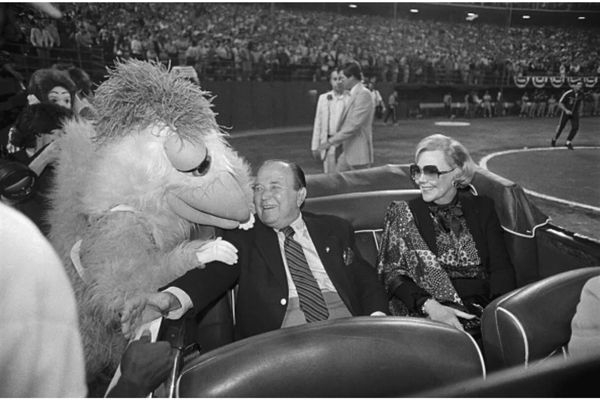
Photo: www.overtimeheroics.net Video: MLB

























